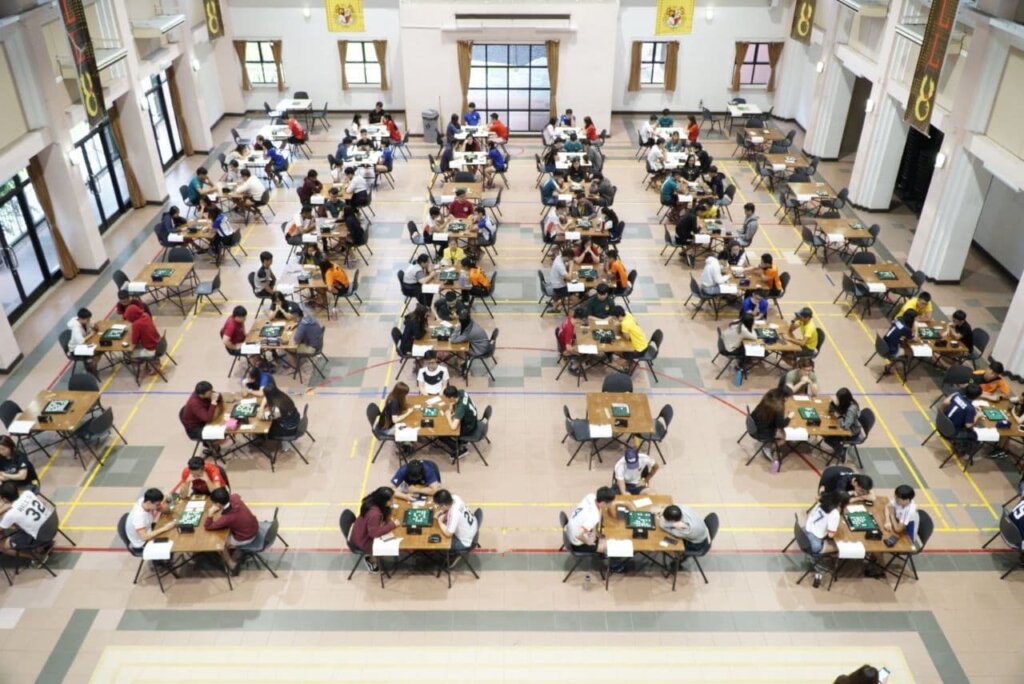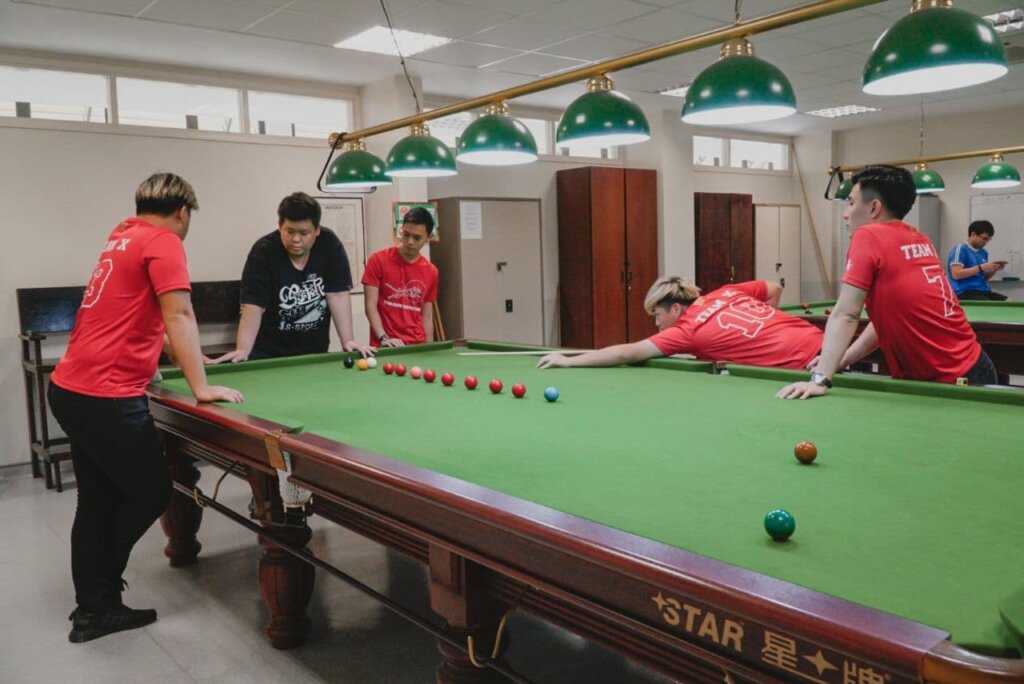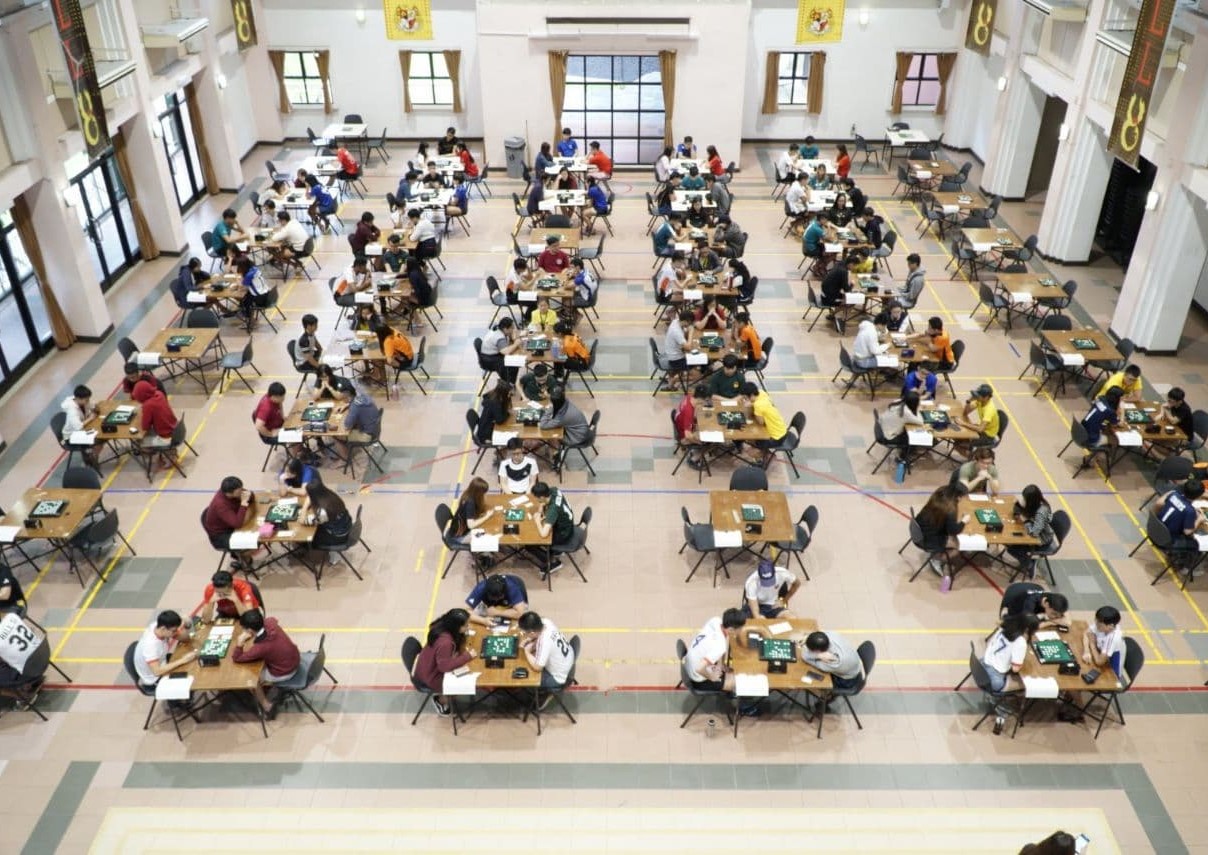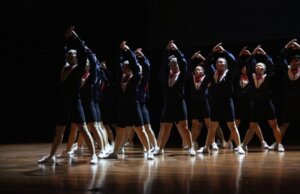- As a contingency measure amid the pandemic, IHRG will be held Dec 19 to Jan 10 using online platforms. Other games that need to be played in person are cancelled
- Participating teams must be physically present in an allocated room at the Arc with an umpire to ensure fair play
- The shift online poses new challenges in training for Hall teams, while captains of cancelled games worry that the lack of competitions might affect next year’s intake for IHRG teams
By Aditi Bharade and Shiya Watanabe
Photos by Ng Yi Yang
As this year’s Inter-Hall Recreational Games (IHRG) move online due to the Covid-19 pandemic, team captains and veteran players said the virtual environment poses new challenges for them, and some raised doubts on whether their teams can fully adapt to the changes.
While three games — carrom, darts and snooker — were cancelled this year, the rest of the annual competition will still be played online from Dec 19 to Jan 10, announced the Joint Hall Recreational Committee in a statement on Monday (Dec 14).
The announcement arrives after it was declared in late November that the 2020 Inter-Hall Games for sports would be cancelled entirely for the first time in NTU history.
However, Soapbox understands that despite IHRG moving online, participating players must be physically present at the Arc in North Spine. There, each team will be given their own room, where an umpire will be present to ensure fair play.
Some tournaments will use online platforms specifically designed for their respective games, such as Woogles for Scrabble and Bridge Base Online for contract bridge, while others will be held on Zoom or Discord.

Seetoh Wei Song, a second-year student and captain of Tamarind Hall’s Chinese chess team, was worried that his team might not be able to play at their usual standard while competing online.
“Sitting face-to-face can allow for more information-reading and prediction of the opponent’s moves based on their facial expression and body language,” said Wei Song, 22.
The Biomedical Sciences student added that he hopes his players will still enjoy the event and learn from it, although they will interact less with their opponents.
Hall 14 senior Scrabble player Jansen Lawrence Chan, 24, said he feels unprepared for the Scrabble tournament as he still has not tried the online platform selected for the competition.
“For Scrabble, we are used to being able to rearrange our tiles on our rack physically to see the words better. But online, you have to click and drag the tiles one by one. It feels different, but we’ll just have to adapt to it first,” said the fourth-year Electrical and Electronic Engineering student, who previously captained Hall 14’s Scrabble team for three years.
He said his team will soon shift training from the board to the computer to get used to the software and the new competition format.
“I think part of the IHRG experience is the social aspect as well, so it won’t be as fun this year in that sense,” Jansen added.
Hall 14’s contract bridge captain, Chan Tong Ling, a second-year Biological Sciences student, said that the change to playing online will be challenging for her team, which has never played virtually prior to this.
“We are also not used to playing online and seeing the cards on screen, so that may be a challenge. Being able to touch and hold the cards will greatly be missed,” said Tong Ling, 20.
On the other hand, Ng Wei Kang, a senior player from Hall 7’s contract bridge team, said that playing the game online could provide a more relaxed environment for his team.
“Shifting the games online won’t really affect my performance. In fact, it may even help because the atmosphere is more relaxed,” the 23-year-old said.

Virtual games as a contingency plan
According to the planning committee’s statement, organisers had originally considered holding the games virtually as a contingency plan while waiting for safe distancing guidelines from the Student Affairs Office (SAO).
The committee wrote that it decided to move the games online after realising that if it were to follow SAO’s guidelines, a single physical tournament for one recreational game would take 10 days and three separate function halls at minimum.
“Timeline-wise, this would imply that IHRG could potentially drag until mid-February 2021,” wrote the committee, adding that its decision was also influenced by the likelihood of player fatigue and the high cost of hiring chief umpires for an extended period.
Hall 9’s carrom vice-captain, second-year Communication Studies student Siew Ming Li, welcomed the cancellation of the carrom competition this year, as Covid-19 safe distancing rules had prevented her team from practising regularly.
“Honestly I was a little relieved (that IHRG for carrom was cancelled), because with Covid restrictions, our training was affected. We couldn’t hold training as often and for as long, and fewer people were allowed to attend,” said Ming Li, 20.
But Ming Li said she is concerned that the lack of inter-hall competitions might affect next year’s intake for Hall 9’s carrom team.
“Hall 9 was carrom champion three years in a row until last year, when we placed runner-up, so it’s always been quite a niche in our hall and many freshmen are attracted to it based on what seniors tell them of the previous years’ IHRG experiences,” she said.



